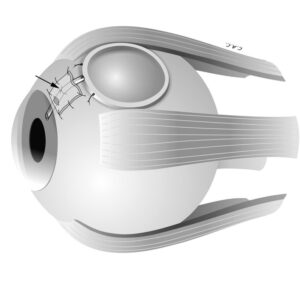Description
Familiarity with Treatment
Endosteal implants are a common type of dental implant used to replace missing teeth. They are typically made of titanium and are shaped like small screws, which are surgically placed into the jawbone to serve as artificial roots for holding replacement teeth. This type of implant is protruded through the gum to hold the replacement tooth in place.
Who is it Suitable for?
Endosteal implants are suitable for individuals who have lost one or more teeth and have sufficient jawbone density to support the implants. They are the most commonly used dental implants and are often recommended for individuals seeking a durable and stable tooth replacement solution.
Who is it Not Suitable for?
Endosteal implants may not be suitable for individuals with insufficient jawbone density to support the implants. Additionally, individuals with certain medical conditions or habits that can impair healing, such as uncontrolled diabetes, heavy smoking, or alcohol abuse, may not be suitable candidates for this procedure.
Advantages
- Durability: Endosteal implants are known for their durability and stability, providing a reliable long-term solution for tooth replacement.
- Commonly used: They are the most commonly used dental implants, indicating their widespread acceptance and success in dental implant procedures.
- Versatility: Endosteal implants can be used to support single crowns, bridges, or dentures, providing options for various tooth replacement needs.
Complications
- Infection: As with any surgical procedure, there is a risk of postoperative infections.
- Implant Failure: While dental implant success rates are generally high, there is a small risk of implant failure, including with endosteal implants. Factors that can contribute to implant failure include poor oral hygiene, smoking, certain medical conditions, and inadequate bone support.
- Nerve and Tissue Damage: In rare cases, nerve damage or tissue damage may occur during the implant placement procedure.
Preoperative Care
Before undergoing endosteal implant placement, a comprehensive evaluation is performed by a dental professional. This may include a review of the patient’s medical history, dental examination, and imaging techniques (such as X-rays or CT scans) to assess the bone density and overall oral health. Careful patient screening and selection are crucial when considering endosteal implants.
Postoperative Care
After endosteal implant placement, postoperative care may involve managing pain and discomfort, as well as following specific instructions provided by the dental professional. This may include taking prescribed medications, practicing good oral hygiene, and attending follow-up appointments to monitor the healing process. Patients should be instructed on reduced functional capability and soft dieting during the initial postoperative period to decrease the risk of overload and ensure the success of the implants.




Reviews
There are no reviews yet.